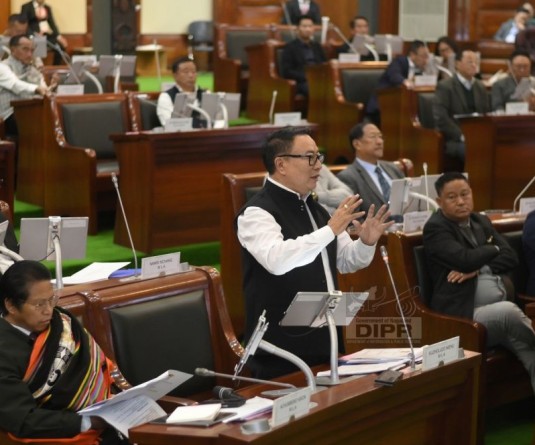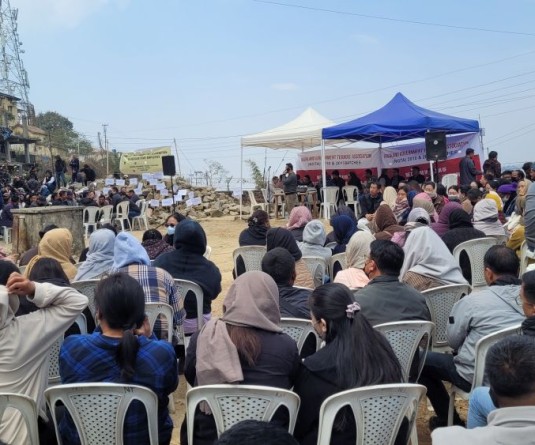
DIMAPUR, JULY 2 (MExN): The ARK Foundation in collaboration with the Nagaland Social Welfare Department conducted a virtual seminar on ‘substance use and addiction counselling’ with the various authorities and staffs of the juvenile homes, observation and special homes of the state.
The attendees included Probation Officers, District Child Protection officers, Superintendents, and Counsellors, various homes across the state.
The session was addressed by Raitele Zeliang, Program Officer, Child Protection Services, Nagaland. She expressed her concern about the need to collective addressing the issue of substance use in the state and with a focus on addressing the needs of the children who are in conflict with the law as a result of their drug use.
The Department has also come across some cases where children are being introduced into drug use but since the scope to get them rehabilitated and treated is not available, various children homes cater to their needs. But a standardized drug treatment approach to help them get treated is a felt need.
Ketho Angami, President, ARK foundation spoke on the first session by giving a general background of the history of drug addiction in the state. He shared the definition of drugs, types of drugs and the various forms and reasons as to why people start taking drugs. In the context of early intervention, he lamented that young adolescents are being introduced into drugs at a very early stage when they are in their high schools.
Such introduction usually starts with gateway drugs such as sniffing dendrites and other volatile solvents, chewing of tobacco and other nicotine products and then they gradually start indulging in harder drugs like opiod and sedative drugs. This progression to the dependency stage results in situation where they come in conflict with the law and ends in distress.
He also shared the various harms associated with drug use like, physical, emotional, occupational, familial and legal harm harms and to which there are various strategies to deal with it. And within this, under the purview of the Department, the Demand reduction strategy is a crucial role.
He informed on some of the program and service centres where OST, Detoxification and Rehabilitation centres are being provided.
Lozua Kape, Prodigals Home delivered on the session ‘Addiction Counselling.’ In her presentation, she mentioned that young children are seen coming into maximum use of weed (Ganja), alcohol, tobacco and dendrites. While some of them are street children, there are also children from well to do family. Their experiences also showed that some children were expelled from their schools because of their drug habit.
Onexploring on the roots of the reasons for such habit, she mentioned that their experience showed that there are reasons like availability and social factors but the family atmosphere also plays a very important role. There are parents who are very strict and authorities and this is also one attributing factor as to why children start using drugs, Kape added.
Narrating the case incident of a child, it was known after a series of counselling session, that the child was neglected at large by the parents in comparison with his other siblings. So in order to draw the attention of his parents, he resorted to using drugs.
Addiction is more than physical but also includes mental, so counselling and cognitive behavioural therapy plays a very important role, Kape said.
Some recommendations she presented to address addiction among childrenwere primary prevention at school through education, good linkages with professional counsellors, capacity building of service providers, setting up of a specific drug rehab centre for children, advocate and sensitize school authorities not to penalise children caught with using drugs.
The seminar concluded with key recommendations on the need to have specific childrenrehab centre, setting up of a children and their family counselling centre, to conduct such similar programs to empower the department and NGOs withknowledge on ‘substance use’, and to explore possibilities with theHealth Department to providing a minimal dose of Buprenorphine during their acute withdrawal.
The webinar ended with a round of questions and answers and further deliberation on further action plans.






